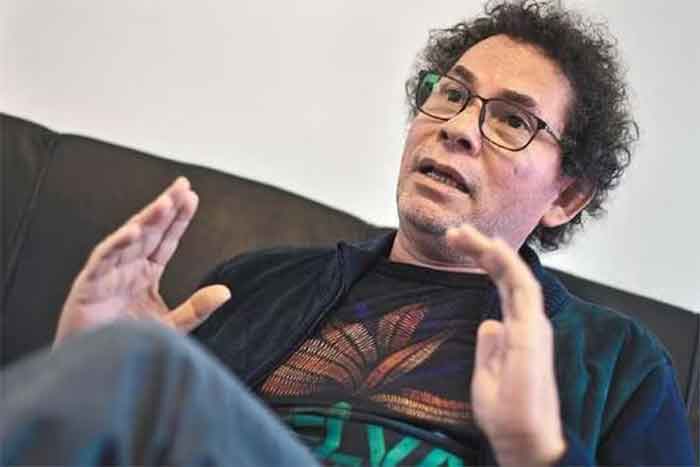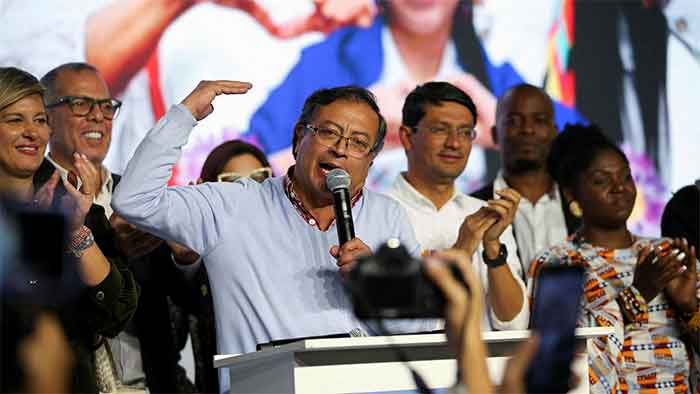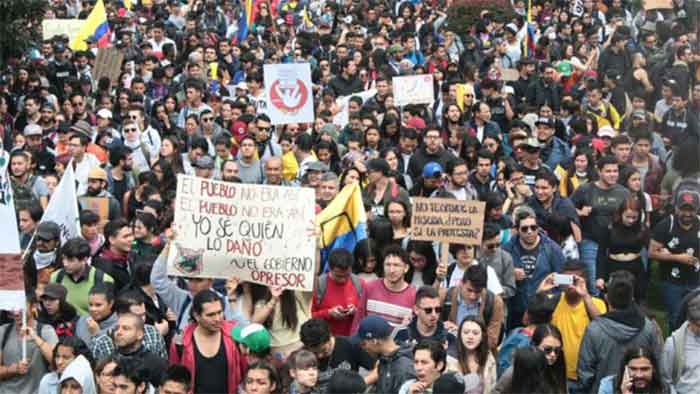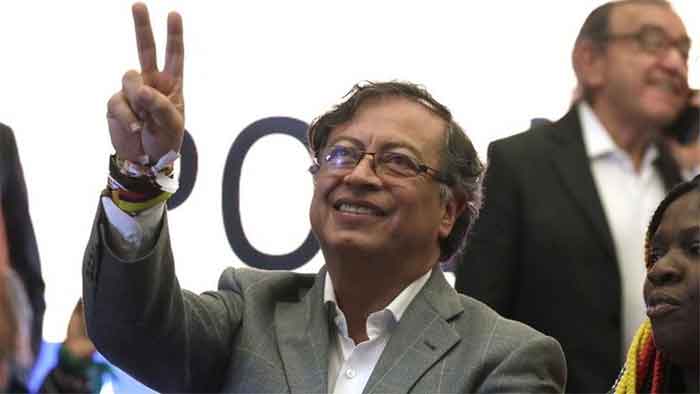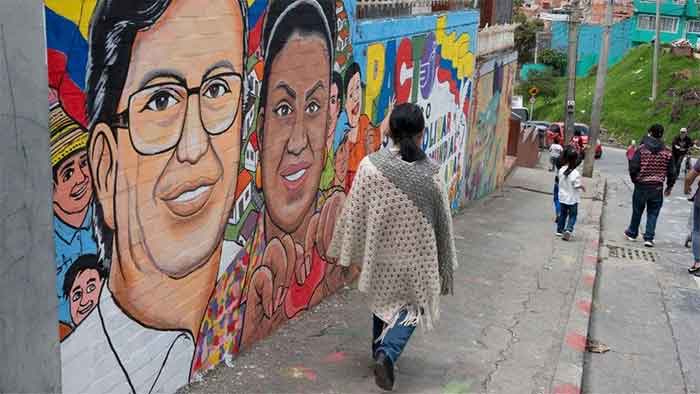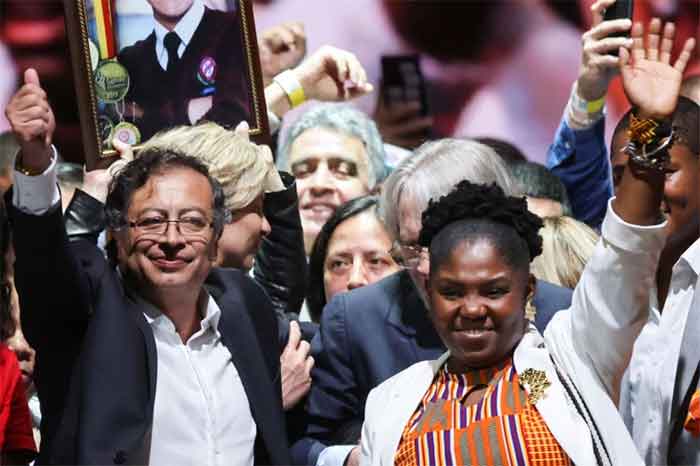
Gustavo Petro, a former rebel, has been elected Colombia’s first leftist president on Sunday. Petro’s triumph, in one of the most historically conservative countries on the continent, is a stunning example of widespread discontent that is shaking the status quo. It is a powerful rejection of the political establishment that has ruled the South American nation for two centuries.
Voters on Sunday also made history in electing the country’s first Black female vice president, Francia Márquez, an environmental activist, lawyer and former housekeeper who energized a large Afro-Colombian community that long felt forgotten by those in power.
“Today is a party for the people,” Petro said in a tweet Sunday night. “Let us celebrate the first popular victory. May the sufferings of many now be cushioned in the joy that today floods the hearts of the Homeland.”
Petro’s competitor Rodolfo Hernández swiftly accepted the results on Twitter.
“I hope that this decision that has been made is beneficial for everyone,” he said in a video address on social media. “I hope that Gustavo Petro will know how to lead the country, that he will be loyal in his discussion against corruption, and that he will not disappoint those who chose him.”
On Sunday, over 39 million Colombians voted to elect their president between Gustavo Petro (Historical Pact) and Rodolfo Hernandez (League of Anti-Corruption Rulers).
Petro rallied young and poor voters with promises to transform an unequal society.
Riding a wave of support from Colombians desperate for change in a country struggling with high levels of poverty, Petro received more than 51 percent of the vote. The 62-year-old senator defeated Rodolfo Hernández, a wealthy businessman who garnered about 47 percent of the vote.
Colombia, the third-largest nation in Latin America, now becomes the latest country to shift left in a region ravaged by the coronavirus pandemic’s economic assault.
Petro’s win is remarkable not only because of his political ideology but also because of his life story: A former guerrilla, who served time in prison in the 1980s for his involvement with a rebel group, will now become president in a country still reeling from armed violence. His presidency could have profound implications for Colombia’s economic model, role of government, and its relationship with other countries in the hemisphere — including the U.S., its most important ally.
Petro’s campaign galvanized communities struggling from the pandemic in a country where half the population doesn’t have enough to eat and 40 percent are living in poverty. His campaign tapped into the desperation and anger of those who took to the streets last year in massive nationwide protests. And his victory is a loud rebuke of the deeply unpopular administration of incumbent Iván Duque, who many felt did little to improve the economic situation in one of the region’s most unequal countries.
Petro said he would declare an economic state of emergency to combat hunger, a proposal criticized by some constitutional law experts.
Petro proposes transforming the country’s economic system by redistributing wealth to the poor. He says he will establish free higher education, a universal public health-care system and a minimum wage for single mothers, raise taxes on the 4,000 wealthiest Colombians and boost the local agriculture industry.
Some analysts worry Petro will not be able to deliver on his promises with a divided legislature.
Petro has suggested changing the extradition treaty between Colombia and the U.S.
Petro envisions a progressive alliance with Chile and Brazil, a new Latin American left built not on extractive industries but rather on protecting the environment.
He also said he would normalize relations with neighboring Venezuela, a significant shift from Duque, one of the region’s staunchest opponents of socialist president Nicolás Maduro.
Petro was a member of the 19th of April Movement (M-19), a political urban guerrilla that later demobilized, reached a peace agreement with the government and became a political party.
Latin American Leaders Celebrate Historic Victory
The presidents of Argentina, Cuba, Chile and Venezuela congratulated Gustavo Petro on his historic triumph.
Venezuelan president Nicolás Maduro said: “The Colombian people’s will was heard, they came out to defend democracy and peace. New times are coming for that brother country.”
Miguel Díaz Canel, president of Cuba, said: My fraternal congratulations to Gustavo Petro on his election as President of Colombia in a historic popular victory. We reiterate our willingness to advance in the development of bilateral relations for the well-being of our peoples.
Andrés Manuel López Obrador, president of México, said: “Gustavo Petro’s victory is historic. Conservatives in Colombia have always been tenacious and tough.”
Gabriel Boric, president of Chile, said: “We shall work together for changes in the continent.”
Alberto Fernández, president of Argentina, said: “I am very happy about the triumph of Gustavo Petro and Francia Márquez.”
Former Bolivian president Evo Morales and Peace Nobel-Prize winner Adolfo Pérez Esquivel, of Argentina congratulated Colombia’s president-elect Gustavo Petro.
“The Latin American unity project is advancing under the banners of equal rights, sovereignty and future”, wrote Pérez Esquivel on his Twitter account.
Evo Morales wrote: “”We congratulate the people of Colombia, brother Gustavo Petro, newly elected president and sister Francia Marquez, first Afro-descendant vice president in the history of that country for his undisputed triumph at the polls. It is the victory of peace, truth and dignity.”
Colombian president Iván Duque congratulated Petro on his win in a telephone call.
Senator Maria Jose Pizarro
During election campaign, Senator Maria Jose Pizarro, the daughter of Carlos Pizaro — the former commander of the M19 guerrilla who was assassinated after laying down his arms and becoming a presidential candidate in 1990 — called on citizens to vote massively to change Colombian history.
Senator Maria, who is currently part of the coalition of political and social organizations supporting Gustavo Petro, was 12 years old when her father was riddled with bullets on a flight between Bogota and Barranquilla.
Despite this political assassination, the M-19 respected the peace agreement and became a leading political force in the drafting of the new Colombian constitution in 1991.
Senator Maria Jose Pizarro’s tweet reads, “Dad. Today I vote for you, I vote in tribute to the peace you dreamed for Colombia. I vote for my daughters and all this land’s children. I vote for us, the nation’s women. I vote for the dream that Gustavo Petro called to build. It has been an honor to accompany you.”

